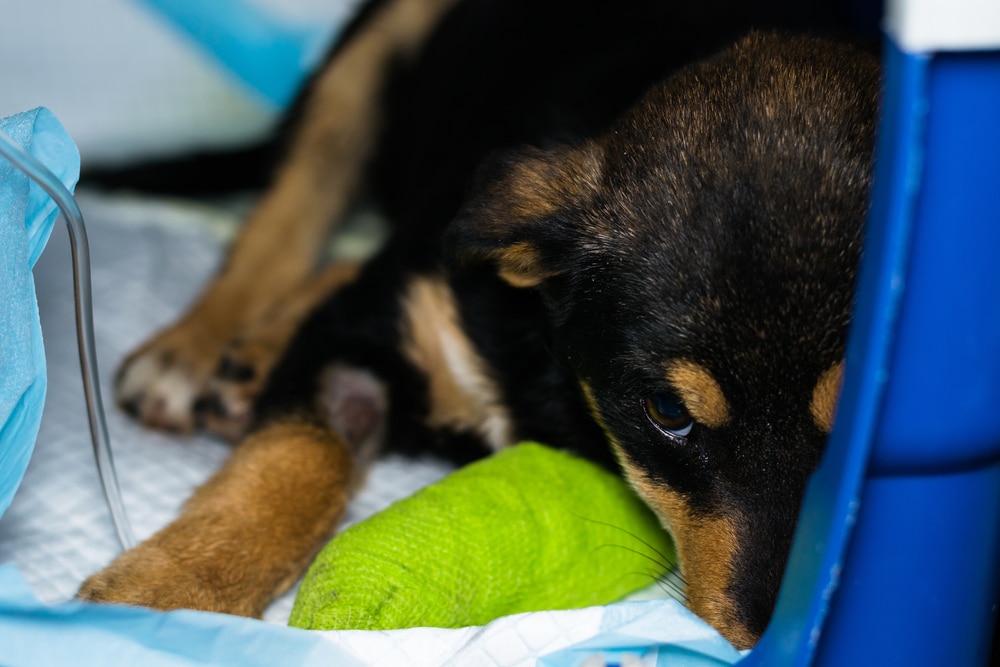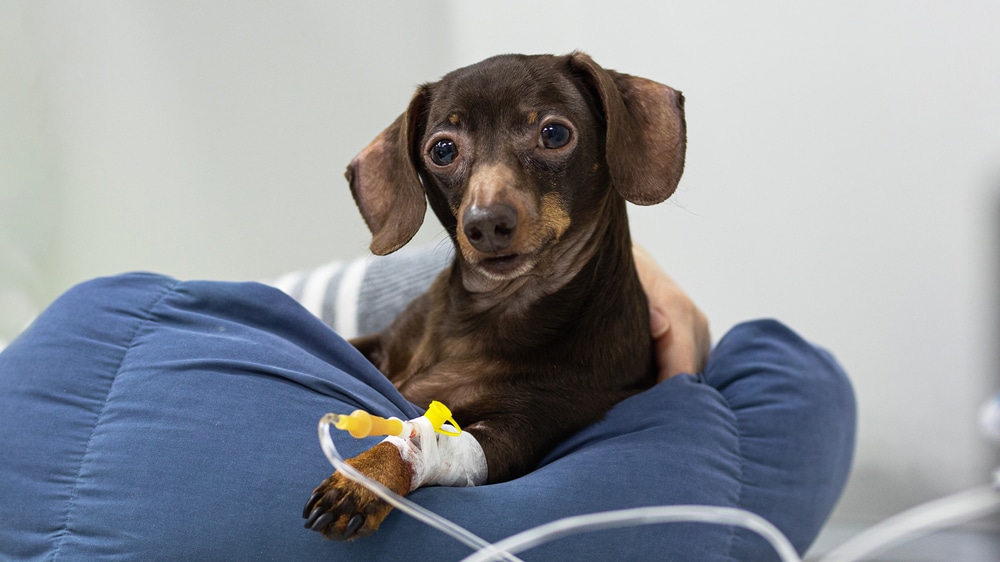You bring in your new puppy home, and in the next couple of days, it starts to not be its usual self. You take the dog to the vet, and among the many questions you are asked is, “Is your puppy regularly vaccinated?”
Canine parvovirus is a highly contagious and deadly virus that spreads between dogs due to direct contact or contact with contaminated feces. Dogs with parvovirus suffer from bloody diarrhea, vomiting, lethargy, loss of appetite, weight loss, dehydration, and more. If you notice any of these symptoms, contact your veterinarian right away.
Table of Contents
What Is Parvovirus And How Do Puppies Get It?
Canine parvovirus (parvo) is caused by a virus called parvovirus that causes gastrointestinal problems as well as myocardial infarctions. This virus is not only common to dogs as it can also affect wolves, foxes, and skunks. A similar virus, called feline panleukopenia, is the same as this one.
The virus is highly contagious, and it can be spread through direct contact with an infected animal or if the healthy puppy (or older unvaccinated dog) came into contact with an object that the ill puppy was in contact with before. Puppies are known to be explorers, and they want to see, smell and lick everything, which is usually how they come in contact with the virus.
Because this is a very stubborn virus, meaning killing it is very hard, it does not come as a surprise when there are a lot of puppies getting sick from it. That is why vets always recommend thorough cleaning when you have had a puppy that was sick from parvovirus, even up to the point of changing clothes when tending to the sick puppy.
Another way for your puppy to contract the virus is if they walk through an environment where sick dogs have been spending time. Since the virus is very resistant, it can live outside for a very long period, which means your puppy can easily contract it even in the dog park.
What Are The Symptoms Of Puppies With Parvo?
Please know that a puppy that has parvo is one very sick pooch. Many times I have had owners come into the clinic saying that in the morning, their puppy was perfectly fine, but in the evening, they were kind of feeling under the weather. Usually, that is the first thing owners notice, a puppy who refuses to play or even refuses a nice juicy sausage. Other symptoms are:
- Bloody diarrhea
- Vomiting
- Lethargy
- Loss of appetite
- Losing weight
- Dehydration
- Depression
How Do Vets Diagnose Parvovirus In Puppies?
Usually, when an owner walks in with a young puppy, the first thing every vet asks is whether the puppy was fully vaccinated. This means they want to know if your puppy was properly protected against parvo, among other viruses and bacteria that are known to cause serious illness in puppies. If it hasn’t been vaccinated, then your vet will suggest doing some blood work and a quick snap test that will help them confirm their suspicion.
Can Vets Treat Parvo?

Unfortunately, vets cannot treat the virus itself. What vets actually do is treat the symptoms and, in a way, help your pup fight off the virus themselves. That is why vets give them something called supportive medications, such as saline and vitamins. Puppies who have parvo lose a lot of fluids and are unable to keep food and water even if you feed them. And they usually die out of dehydration, so vets fight against this.
Another thing is that when the virus passes through the intestines, it damages them, making them susceptible to secondary bacterial infection. This is the reason why vets may sometimes put their pup on antibiotics when they have a viral infection. Your pup is not capable of fighting off both viral and bacterial infections at the same time.
Can Owners Prevent A Parvo Infection?
Yes!!! Whenever you are getting a puppy, please do not rush to pick it up. A good breeder will always let you have your new friend after they have received at least the second dose of the vaccine. Also, this should be a red flag for new owners if the breeder is willing to let you visit at an early age or if they are giving you the puppy sooner rather than later. We always recommend doing research on breeders beforehand and being upfront about asking them these types of questions.
Another point is that you need to keep your puppy in quarantine until it has completed its vaccination schedule. Because socialization at that period is important, try to organize play dates at your house and let your puppy play with dogs that you know are up to date on their vaccines. Don’t take your puppy to the park before your vet tells you to, either. There is a reason why we recommend this: we simply don’t want to see your puppy sick with parvo because we know that you may end up losing the puppy. And that’s the last thing any of us want.
Conclusion: What Is Parvovirus?
Parvo is a serious viral disease that kills puppies. We strongly recommend you consult a vet before you take home your furry friend. Also, please listen to what vets say. We’re here to help.
So, let us know your thoughts on parvo. Has your dog ever experienced something like this? Let us know in the comments below!
